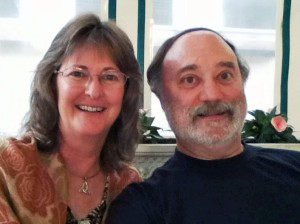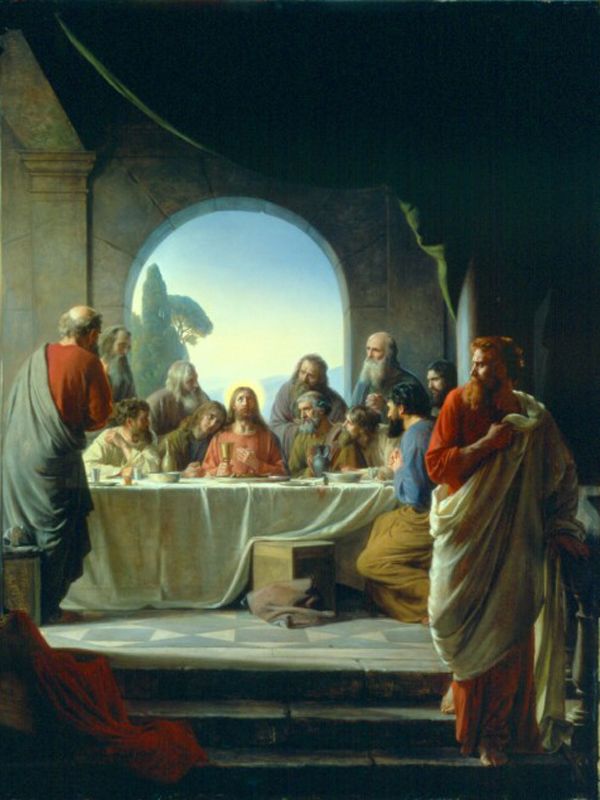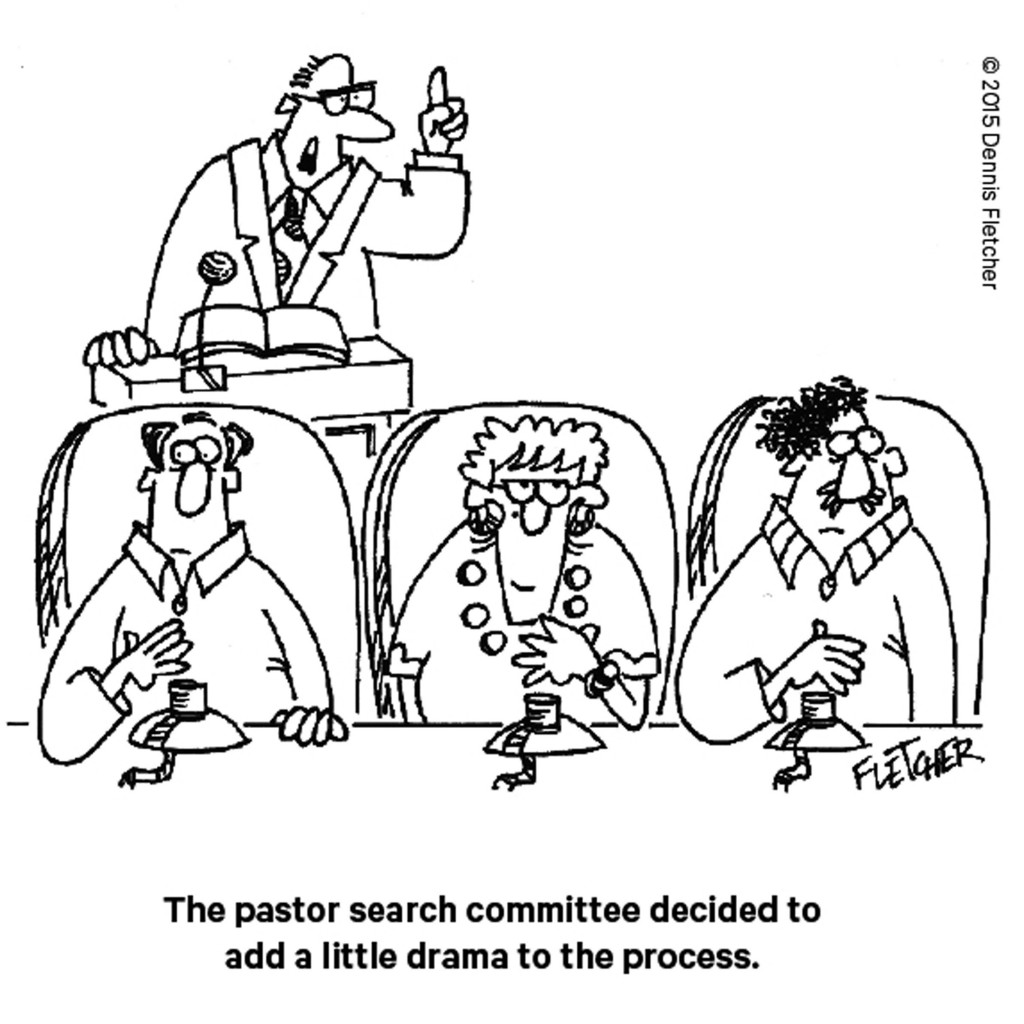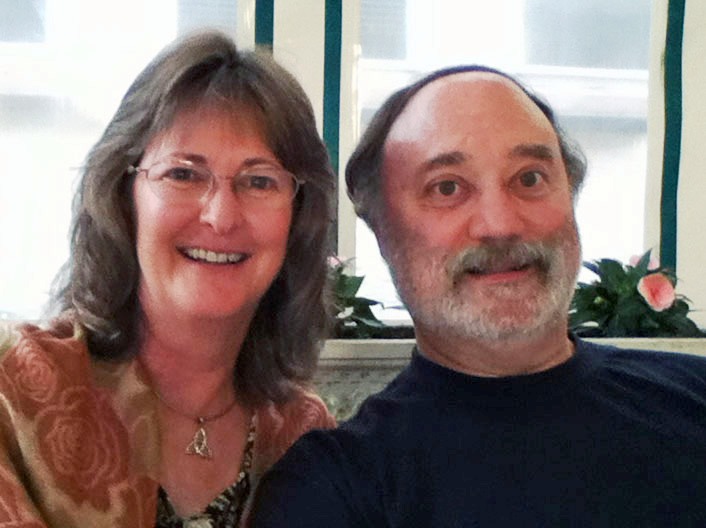Dear Brothers and Sisters in Christ,
 In his Gospel and epistles, the apostle John tells us that God is light, love and life. These three key words are especially appropriate to consider as we approach Holy Week, which begins this Sunday (March 29). The apostle Paul also uses these three words in his epistles, where typically they appear in connection with the Triune God: Father, Son and Holy Spirit. Echoing Jesus’ proclamation in John 10:28-29, Paul declares that nothing “will be able to separate us from the love of God that is in Christ Jesus our Lord” (Romans 8:38-39, emphasis added). In his first letter to Timothy, Paul indicates the connection between life and light:
In his Gospel and epistles, the apostle John tells us that God is light, love and life. These three key words are especially appropriate to consider as we approach Holy Week, which begins this Sunday (March 29). The apostle Paul also uses these three words in his epistles, where typically they appear in connection with the Triune God: Father, Son and Holy Spirit. Echoing Jesus’ proclamation in John 10:28-29, Paul declares that nothing “will be able to separate us from the love of God that is in Christ Jesus our Lord” (Romans 8:38-39, emphasis added). In his first letter to Timothy, Paul indicates the connection between life and light:
Fight the good fight of the faith. Take hold of the eternal life to which you were called when you made your good confession in the presence of many witnesses. In the sight of God, who gives life to everything, and of Christ Jesus, who while testifying before Pontius Pilate made the good confession, I charge you to keep this command without spot or blame until the appearing of our Lord Jesus Christ, which God will bring about in his own time—God, the blessed and only Ruler, the King of kings and Lord of lords, who alone is immortal and who lives in unapproachable light, whom no one has seen or can see. To him be honor and might forever. Amen (1 Timothy 6:12-16, emphasis added).
The biblical revelation is that our triune God is one and acts as one. We could summarize the Triune God’s unity of action by saying that the Father calls light and life into existence, the Holy Spirit illumines our lives with his light, and Jesus Christ is sent as the light and life of the world. Our Triune God does all this out of the overflow of their eternal holy love: “For God so loved the world.”
Light, love and life. Something about these three words evokes pleasure, and that leads to celebration. Have you noticed that weddings, renewal of vows, and even fundraising events are referred to as “celebrations of love”? Christmas and independence days are called “celebrations of light.” Late-life birthdays, funerals and memorial services are called “celebrations of life.” Such celebrations view light, love and life as gifts. But do people know the gift-giver?
In Scripture, light, love and life are interrelated as gifts that flow from the very being of God: “In him was life, and that life was the light of all mankind. The light shines in the darkness, and the darkness has not overcome it” (John 1:4-5). The story of Jesus is about this light coming into the world to give us life because of the love of the Father. Indeed, light, life and love convey the meaning of Jesus’ death and resurrection. This is seen in the last three days of Holy Week, which focus on Jesus’ passion (suffering), death and resurrection. These are three aspects of one, indivisible, unrepeatable, unique event that points us to one, indivisible person—Jesus Christ.
 The one great event of Jesus’ “passover” from life to death, then back to life is called the Holy Triduum (and sometimes the Easter or Paschal Triduum). The word triduum (meaning “three days”) was first used by Augustine to express the essential unity of the three-day-long Paschal event beginning at sunset on Maundy Thursday (many GCI churches hold a Last Supper commemoration service that evening), leading into Good Friday (when we remember Jesus’ crucifixion and death), followed by Holy Saturday (when we remember Jesus lying in the tomb), and culminating with Easter Sunday, when we celebrate Jesus’ resurrection.
The one great event of Jesus’ “passover” from life to death, then back to life is called the Holy Triduum (and sometimes the Easter or Paschal Triduum). The word triduum (meaning “three days”) was first used by Augustine to express the essential unity of the three-day-long Paschal event beginning at sunset on Maundy Thursday (many GCI churches hold a Last Supper commemoration service that evening), leading into Good Friday (when we remember Jesus’ crucifixion and death), followed by Holy Saturday (when we remember Jesus lying in the tomb), and culminating with Easter Sunday, when we celebrate Jesus’ resurrection.
Though Holy Saturday often is overlooked in Protestant churches these days, it has been emphasized throughout Christian history. Orthodox Christians refer to it as “the Great and Holy Sabbath.” Part of their liturgy is to sing “This is the Day the Lord has Made,” taken from Psalm 118, the last Psalm of Passover, which was believed to be the hymn Jesus last sang with his disciples. Coptic Christians refer to it as “The Saturday of Light” and “Joyous Saturday.”
We should not miss the imagery of Holy Saturday, which portrays Jesus’ lifeless body spending the Sabbath in the darkness of death, buried in the tomb. As explained by the apostle John, this imagery points us to the light and life of God: “This is the message we have heard from him and declare to you: God is light; in him there is no darkness at all” (1 John 1:5). “In him was life, and that life was the light of all mankind. The light shines in the darkness, and the darkness has not overcome it” (John 1:4-5). John reminds us that darkness and death did not hold Jesus in bondage. God entered the darkness and broke through. The good news for all is that, for the sake of his love, God brings resurrection light to dispel all darkness; to bring life out of death.
 Because of Holy Saturday, we need not fear the dark. When young, my sisters were afraid of the dark and wanted a night-light in their bedroom. But then they experienced some panic when seeing strange shadows. I remember what my mother said to comfort them: “God is always with us, even in the dark.” My mom’s words were a cogent reminder that God loves us in ways we cannot imagine. He loves us in our darkness, ignorance and foolishness. Hearing we are forgiven and that, in Christ, there is no condemnation for us, not only makes me appreciate the depth of God’s love, it makes me want to light up fireworks! I sometimes dream of enjoying supernatural light shows when we experience eternal life in the fullness of God’s kingdom.
Because of Holy Saturday, we need not fear the dark. When young, my sisters were afraid of the dark and wanted a night-light in their bedroom. But then they experienced some panic when seeing strange shadows. I remember what my mother said to comfort them: “God is always with us, even in the dark.” My mom’s words were a cogent reminder that God loves us in ways we cannot imagine. He loves us in our darkness, ignorance and foolishness. Hearing we are forgiven and that, in Christ, there is no condemnation for us, not only makes me appreciate the depth of God’s love, it makes me want to light up fireworks! I sometimes dream of enjoying supernatural light shows when we experience eternal life in the fullness of God’s kingdom.
It is the light of God that reveals reality to us. Physically, we are unable to distinguish color in the dark. Darkness hides dangers, while light exposes them. We need light to see. We need God to see reality. The three days stretching from Maundy Thursday through Good Friday, to Holy Saturday and Resurrection Sunday point to three aspects of one great event—what Jesus has done to reclaim, redeem and reconcile us to God, bringing us into the radiant light of the glory of God. It was the love of God that sent the light of God to bring us into the life of God.
Living with you in God’s love, light and life,
Joseph Tkach
PS: For a helpful Holy Week meditation by Gary Deddo entitled, “Don’t Cry for Jesus” go to https://update.gci.org/2014/04/dont-cry-for-jesus/.
Picture credits (top to bottom): It is Finished by Liz Lemon Swindle (used with permission); Jesus at the Tomb by Jean-Jacques Henner (public domain via Wikimedia Commons); Resurrection of Christ by Carl Heinrich Bloch (public domain via Wikimedia Commons).


















